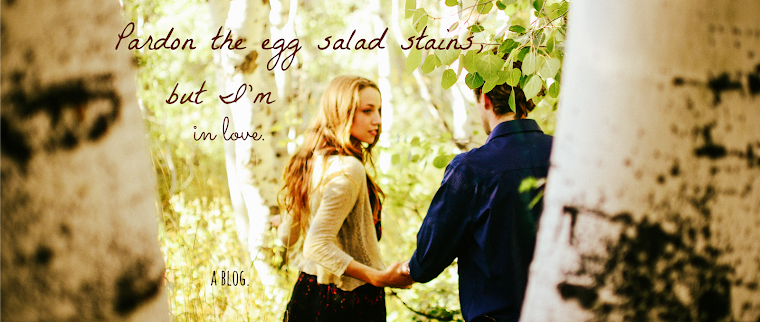But being Dulcinea is something altogether indescribable. I've been gushing to anyone who will listen lately-- including a nice reporter (article here)-- of the soul-stirring, redemptive powers of the creative process of developing a character for the stage. Boy oh boy.
Whenever I get on one of these pontifical rants, Jacob tells me, half-earnestly, half-mockingly, that I should write a book called Life Lessons Learned from Theater: An Actress's Wisdom, or something like that, and include all my philosophies of the power of art and the letters I've received from audience members and whatnot.
Well here's my start, dang it, because my life and my soul and my person would not be what they are without theater, without art, and without the possibility of becoming Dulcinea.
Here's my full interview. Read it and weep. Or, better yet, come to the show and weep. Tickets here.
How did you first get involved with this project, with ‘La Mancha’?
I've loved working with the Hale Orem in the past, and had just finished doing Les Miserables with Dave Tinney. When I auditioned, I had almost no exposure to La Mancha, but I thought it would be a fun challenge. I had no idea!
Please briefly describe your character’s personality? How is it similar to your own?
It's funny you should ask that, because one of the reasons this has been such an incredible learning experience for me is because Aldonza is so different from Anna. At the beginning of the rehearsal process, Dave said we were going to have to bring out my "inner animal". This girl has lived a terrible life, and she copes with that through grit and violence. But I'm the most passive, docile person you'll ever meet! The beauty of Aldonza's journey, though, is that you see her entire rollercoaster-- that verneer of toughness and control, the breaking of it, her exhaustion and depression, her desire to hope for a better life, and her ultimate redemption. Everyone goes through that rollercoaster, to some degree, and I've had to learn to empathize with and understand her experiences so I can make them truthful. I just have to translate her language into my own. Dave and Rob have helped me feel comfortable just being me as Aldonza. And because I'm a very un-Aldonza-like sensitive person, one thing I can do is bring home that tenderness at the end. What's been so difficult for me has been learning to let myself be ugly, dirty, wretched, and completely vulnerable in front of an audience. I talk with my mouth full. I get drunk. I scream and cry and froth at the mouth. And the audience still (hopefully) accepts me! This has definitely been the hardest and most rewarding role I've ever played.
What is it like performing in front of a live audience? Talk about what it takes to connect with an audience?
Everyone loves working in this theater, because the audience is literally right there with you (It's a constant effort not to step on their toes or sit on their laps). Connecting with the audience, then, isn't a problem as long as we, as actors and crew, are connected with each other. Rather than beefing everything up for a giant stage, we have to work for subtlety and honesty. When we do it right, it's incredibly powerful.
Does your character experience a turning point in the story? If so, when? And is there a scene that you are especially anxious for audiences to see?
Because of the intimacy of the theater, Aldonza's journey into Dulcinea is a brutal thing to experience-- which makes it all the more moving. My favorite response is when I've had audience members -- usually women-- just come to me in silence and embrace me. Often there's no need for words . Violence against women is a sickeningly relevant topic-- in the 1500s and today-- and when the audience sees Aldonza try to maintain control, then hit rock bottom, and then ultimately find peace and hope with Don Quixote's help, I think it's a character arch that everyone can relate to. Luckily other characters provide plenty of comic relief, but my job is to make the audience uncomfortable, sad, and ultimately triumphantly hopeful. Ha! No pressure.
Please comment on how the performing arts are kind of universal language and using the arts as a way to share a message.
Humans need a safe place to come together and feel. That's what the theater is for.
What message or feeling would you hope audiences leave with after seeing your performance? After experiencing and seeing your character on stage?
I hope they (as I do) feel a little less lonely in their own journey, and confident that no matter who they are or what they've done, they matter. They are worth more. Every human soul has the potential for beauty and greatness.
How have you approached your character in Tinney’s rendition of “Man of La Mancha?”
I've tried to approach Aldonza with complete empathy and vulnerability. It's a very scary thing to do, as an actor and as a person.
Any other thoughts or comments? Or something you would like to point out?
Come soon, so you'll have time to come back!
Love, fake blood, and the old man after the show that took my hand in tears and whispered "Dulcinea del Toboso...",
Anna










